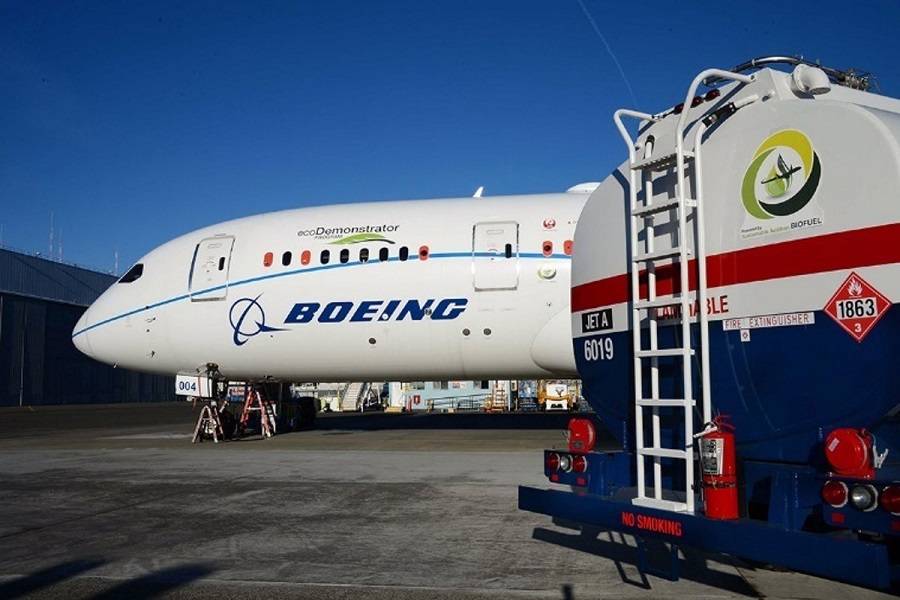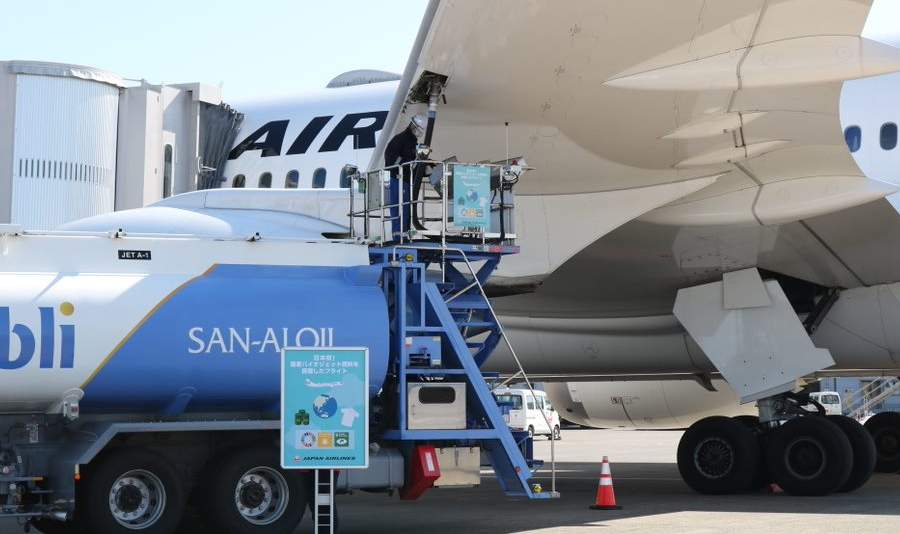Boeing has previously said that it is not sharing Airbus’ optimism about hydrogen propulsion for commercial aircraft. Is this still the case?
A bit over a year ago, we saw a brief press release “war” between Boeing and Airbus. It had to do with hydrogen and its use, in some form, to power future commercial aircraft. At the time, Boeing was announcing its decision to make all of its aircraft compatible with sustainable aviation fuels (SAFs). And Airbus was emphasizing its own efforts in making hydrogen propulsion viable for aviation.
Soon after its announcement about work on SAF, journalists asked Boeing CEO David Calhoon about hydrogen. To many, his reply seemed like a dig at Airbus’ previous statements:
“I have a fair amount of experience with hydrogen, our company has an incredible amount of experience with hydrogen. At least in the size of airframe that we are all talking about. We experiment at the low end, but that’s not going to be a meaningful market here.
“And the advent of sustainable fuel already, already we’re capable of living with that sustainable fuel. I believe that’s going to be the 15-year answer to 2050 guidelines and approaches because we have all worked with it, experimented with it, we know it works, and now we have to develop a supply line for it. But I believe it’s the only answer between now and 2050.”
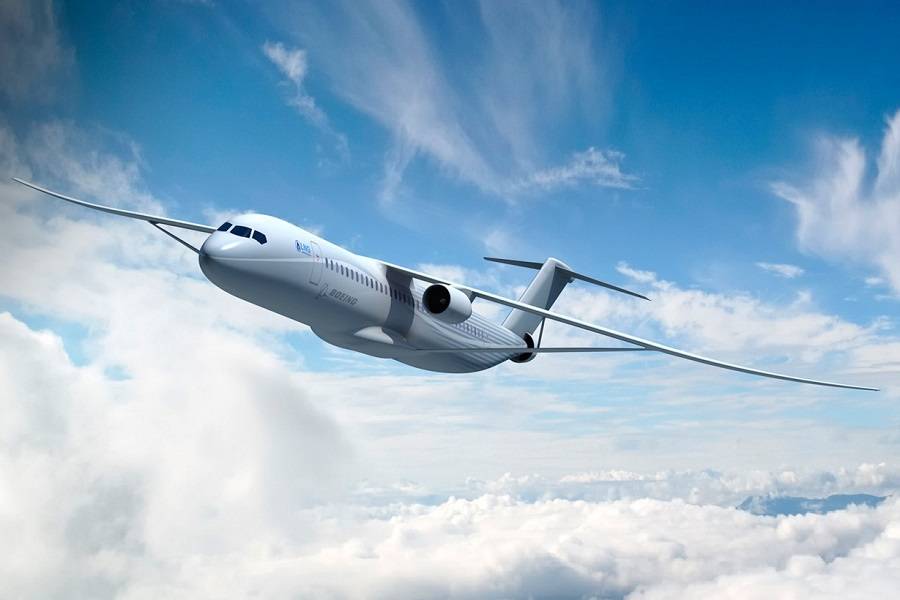
Hydrogen – Airbus Comes Closer To Boeing?
The last sentence above, in particular, seems to suggest that hydrogen propulsion is a very low priority for Boeing. Plus, the company has experience working with hydrogen for space applications, so it knows its challenges intimately. But then again, so does the Airbus group, thanks to its own Ariane space programme.
Airbus released plenty of material on hydrogen after the statements of the Boeing CEO. Airbus also made it clear that it doesn’t dismiss SAFs. It also pointed out that hydrogen can be part of the supply chain of sustainable aviation fuels. Later still, the European manufacturer announced more flight testing with sustainable aviation fuels. Other reports suggested that Airbus could use an A380 to test hydrogen combustion! However, we haven’t heard more on that since.
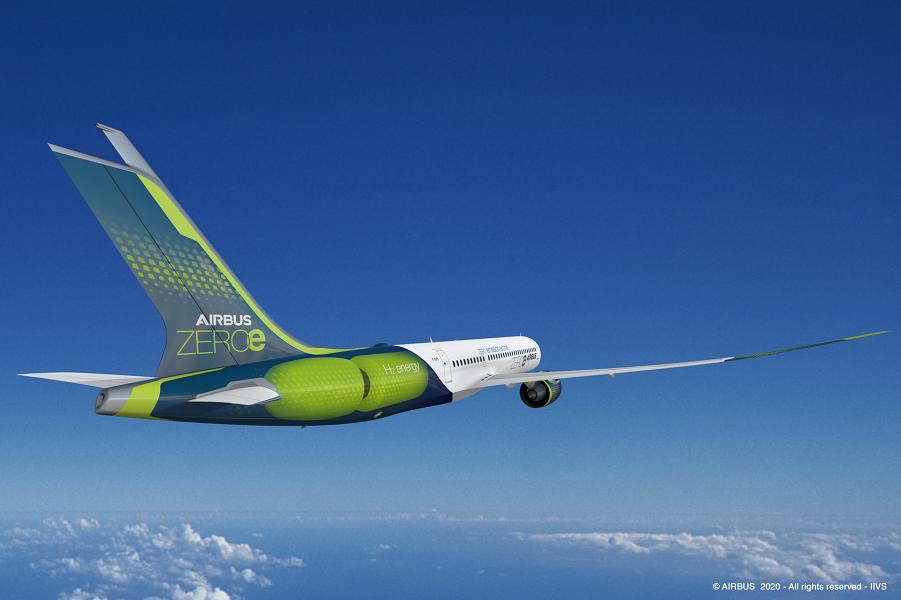
But even before this, we learned that Airbus doesn’t expect to see hydrogen in use for A320-sized aircraft before 2050. While the manufacturer repeated that it expects the first (small) commercial aircraft using hydrogen to appear in the 2030s, its position seemed to converge with that of Boeing. But it’s not that simple.
…Or Boeing And Airbus Meet In The Middle
Boeing hasn’t actually been dismissive of hydrogen propulsion. However, the American manufacturer highlighted that hydrogen involved many more challenges, including in terms of safety. Boeing’s Commercial Airplanes Vice President of Product Development Mike Sinnett said this, in September 2020:
“We have come to enjoy a significant level of safety that’s improved dramatically over the course of the last 70 years of the jet age. And we know a lot about how kerosene is burned and how it can be stored safely and how it can be transported and how engines use that fuel in all environments, from the arctic to the desert.
“As we transition to more sustainable fuels, we have to ensure that there’s no backpedaling in those levels of safety… I do believe we see promise in a transition to more hydrogen-based fuels over time. However, I would caution that it’s not something I believe is right around the corner.”
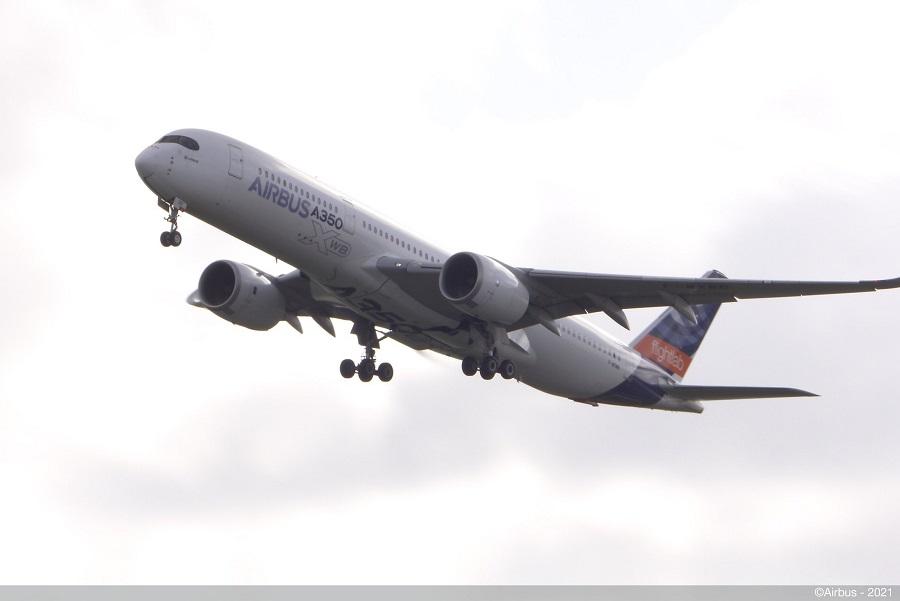
The above suggests that even if hydrogen isn’t a big priority, Boeing is still keeping tabs on developments around it. Boeing reaffirmed this in October 2021, with a statement regarding the aviation industry’s sustainable aviation plans. In a joint move with Airbus, engine makers and others, Boeing committed to strategic goals for sustainable aviation. And these goals include hydrogen.
But that’s not all. Boeing has been working with NASA on cryogenic fuel tanks, including hydrogen, for space applications. This includes NASA’s Space Launch System (SLS), which is part of the Artemis project, for a return to the Moon. And recently, Boeing announced that a new fully-composite, linerless cryogenic fuel tank has passed a critical series of NASA tests. These tests actually took place at the end of last year.
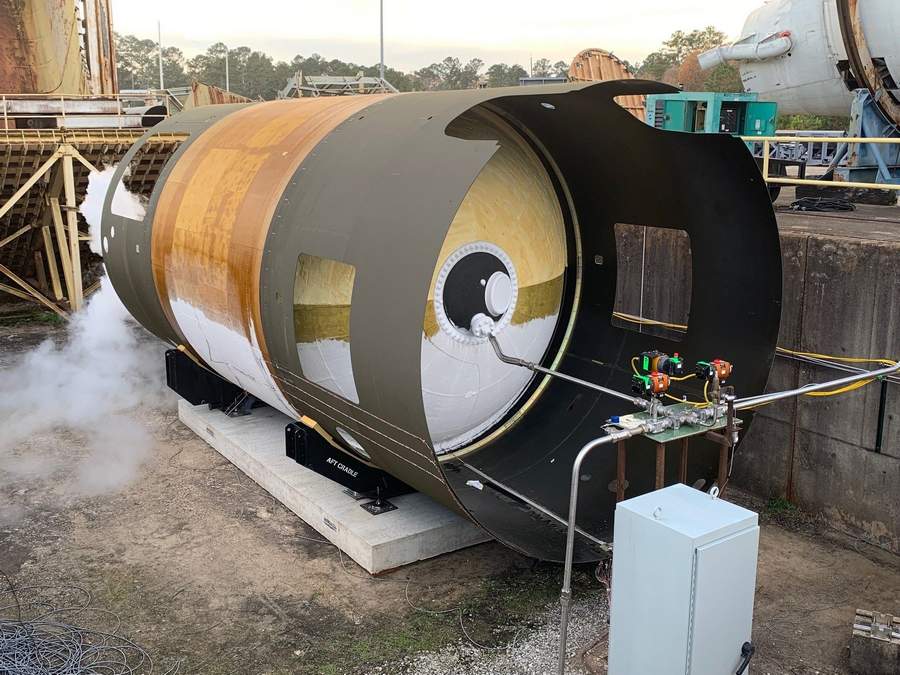
Boeing And Hydrogen In Commercial Aviation
But the announcement goes a lot further. The Boeing statement includes this:
“Applications for the technology expand past spaceflight. The test which builds upon Boeing’s extensive experience with the safe use of hydrogen in aerospace applications will inform Boeing’s ongoing studies of hydrogen as a potential future energy pathway for commercial aviation. In addition to use in space programs, Boeing has completed five flight demonstration programs with hydrogen.”
Obviously, the size and layout of these fuel tanks are in line with their use for the SLS program. But Boeing clearly believes that there are more hydrogen applications for this technology, “…which will ultimately benefit the entire industry”, according to Boeing Test Program Manager Steve Wanthal.
All this is crucial. The tanks, fuel lines and other means of storing and transferring hydrogen is a big part of the challenge. And even here, Boeing and Airbus don’t see eye-to-eye, when it comes to making these hydrogen tanks. Last summer, Airbus announced that it will use metallic cryogenic fuel tanks in its designs. Boeing’s hydrogen tanks are all-composite.
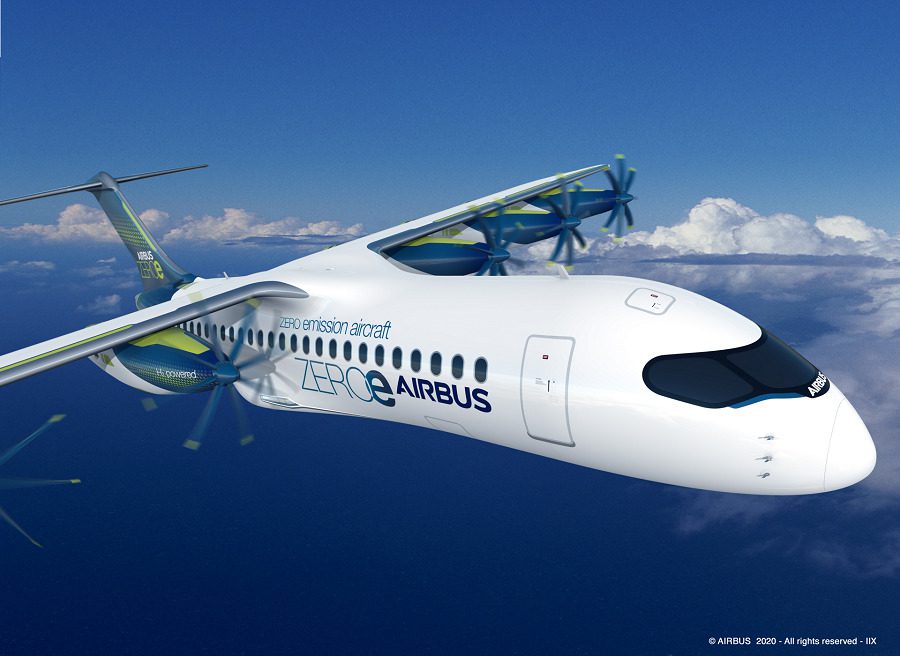
Composites can offer weight advantages, but they are more difficult to make. Or, they need technological advances in manufacturing, to work properly. Both Boeing and Airbus have been devoting a lot of effort to advancing the manufacturing of composites, as we’ve seen. Boeing, in particular, sees this as a key factor in how quickly it can develop its next aircraft design.
Still, it’s unlikely that the next all-new Boeing or Airbus aircraft will use hydrogen for propulsion. But while there are still plenty of obstacles in making hydrogen-electric or hydrogen-combustion aircraft, both manufacturers are working on them. And it’s a finite problem list… in theory.

